Basil Radford(1897-1952)
- Actor
- Writer
Veddy, veddy British stage and film actor Basil Radford (once dubbed "The Eternal Englishman") would actually become best remembered for his droll work in a couple of US films. Specializing in playing stuffy, mustachioed, well bred gents, he was a delightful presence in light, sophisticated comedies and breezy whodunnits.
He was born Arthur Basil Radford in Chester, England on June 25, 1897. He entered military service in 1915 and would serve as a commissioned officer for the British Army during World War I. He suffered a facial wound in the trenches that would later be obscured by clever camerawork and makeup over the years. Following military duty in 1918, he pursued an acting career and trained at the Royal Academy of Dramatic Art (RADA). Making his stage debut in 1924 with "Collusion." he subsequently appeared in such shows as "The Ghost Train," "The Love Pirate," "Night Must Fall," "Spring Tide," "Blind Goddess," "The White Falcon" and "A Man's House." By 1929, Radford was adding film work to his acting resume with his debut in Ain't It the Truth (1929). He subsequently found upper-class support parts in both comedies and dramas -- Seven Days Leave (1930) starring a young Gary Cooper, Just Smith (1933) Foreign Affaires (1935), Broken Blossoms (1936), Dishonour Bright (1936), Jump for Glory (1937) with Douglas Fairbanks Jr. and Alfred Hitchcock's murder mystery Young and Innocent (1937).
Films became an even stronger focus when Hitchcock rehired Radford and memorably teamed him with actor Naunton Wayne. In one of his early cinematic masterpieces The Lady Vanishes (1938), the dry twosome hilariously portrayed a pair of cricket enthusiasts (Charters and Caldicott) who seem much more interested in reading and commenting on their favorite sport than they are concerned with the alarming number of bodies piling up aboard their train. They clicked so well with audiences in this classic whodunnit that they were asked to successfully reprise their roles in two more films: Night Train to Munich (1940) and Crook's Tour (1940) (in the latter the pair were top billed). Radford and Wayne would pair up again in seven more film outings: Millions Like Us (1943), Dead of Night (1945), Quartet (1948), Passport to Pimlico (1949), It's Not Cricket (1949) and Stop Press Girl (1949). They also showed up together in wartime shorts and radio programs.
Appearances sans Mr. Wayne include the films Dead of Night (1945), The Way to the Stars (1945), The Captive Heart (1946), The Winslow Boy (1948) and the comedy Whisky Galore! (1949), the last finding himself top billed. Following two top-billed character parts as a pompous boss in the working class comedy Chance of a Lifetime (1950) and the major in the racehorse yarn The Galloping Major (1951), the latter which he also co-wrote, Radford's health went into a severe decline and, by the summer of 1951, was forced to leave the screen. On the verge of a modest return in 1952, he suddenly collapsed from a heart attack on the set of the radio adventure "Rogues' Gallery" (which happened to pair him again with Naunton Wayne. He was taken to a London hospital where he died on October 20, 1952.
Only 55, a marvelous character career was lost much too soon. Long married (from 1926) to Shirley Deuchars, the couple had one son.
He was born Arthur Basil Radford in Chester, England on June 25, 1897. He entered military service in 1915 and would serve as a commissioned officer for the British Army during World War I. He suffered a facial wound in the trenches that would later be obscured by clever camerawork and makeup over the years. Following military duty in 1918, he pursued an acting career and trained at the Royal Academy of Dramatic Art (RADA). Making his stage debut in 1924 with "Collusion." he subsequently appeared in such shows as "The Ghost Train," "The Love Pirate," "Night Must Fall," "Spring Tide," "Blind Goddess," "The White Falcon" and "A Man's House." By 1929, Radford was adding film work to his acting resume with his debut in Ain't It the Truth (1929). He subsequently found upper-class support parts in both comedies and dramas -- Seven Days Leave (1930) starring a young Gary Cooper, Just Smith (1933) Foreign Affaires (1935), Broken Blossoms (1936), Dishonour Bright (1936), Jump for Glory (1937) with Douglas Fairbanks Jr. and Alfred Hitchcock's murder mystery Young and Innocent (1937).
Films became an even stronger focus when Hitchcock rehired Radford and memorably teamed him with actor Naunton Wayne. In one of his early cinematic masterpieces The Lady Vanishes (1938), the dry twosome hilariously portrayed a pair of cricket enthusiasts (Charters and Caldicott) who seem much more interested in reading and commenting on their favorite sport than they are concerned with the alarming number of bodies piling up aboard their train. They clicked so well with audiences in this classic whodunnit that they were asked to successfully reprise their roles in two more films: Night Train to Munich (1940) and Crook's Tour (1940) (in the latter the pair were top billed). Radford and Wayne would pair up again in seven more film outings: Millions Like Us (1943), Dead of Night (1945), Quartet (1948), Passport to Pimlico (1949), It's Not Cricket (1949) and Stop Press Girl (1949). They also showed up together in wartime shorts and radio programs.
Appearances sans Mr. Wayne include the films Dead of Night (1945), The Way to the Stars (1945), The Captive Heart (1946), The Winslow Boy (1948) and the comedy Whisky Galore! (1949), the last finding himself top billed. Following two top-billed character parts as a pompous boss in the working class comedy Chance of a Lifetime (1950) and the major in the racehorse yarn The Galloping Major (1951), the latter which he also co-wrote, Radford's health went into a severe decline and, by the summer of 1951, was forced to leave the screen. On the verge of a modest return in 1952, he suddenly collapsed from a heart attack on the set of the radio adventure "Rogues' Gallery" (which happened to pair him again with Naunton Wayne. He was taken to a London hospital where he died on October 20, 1952.
Only 55, a marvelous character career was lost much too soon. Long married (from 1926) to Shirley Deuchars, the couple had one son.


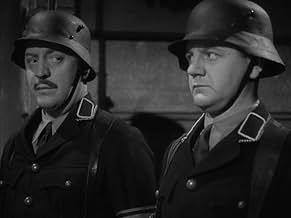
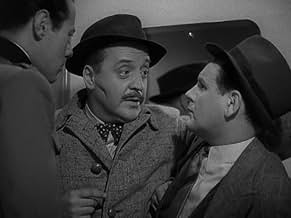
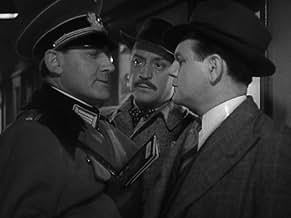
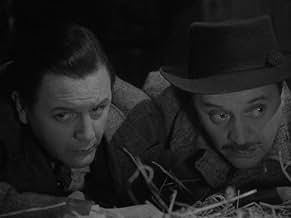
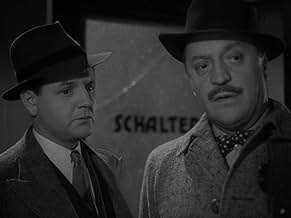
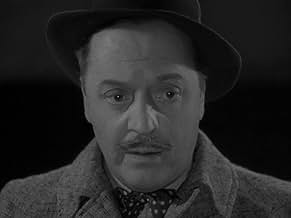
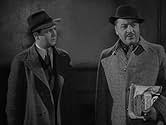


















![The Lady Vanishes: The Criterion Collection [Blu-Ray]](https://m.media-amazon.com/images/M/MV5BYjY3NzQwNzItNGRiZS00N2U1LTgxZGMtZTcwMWFhZTc0OWNjXkEyXkFqcGdeQXVyNzU1NzE3NTg@._V1_QL75_UX500_CR0)